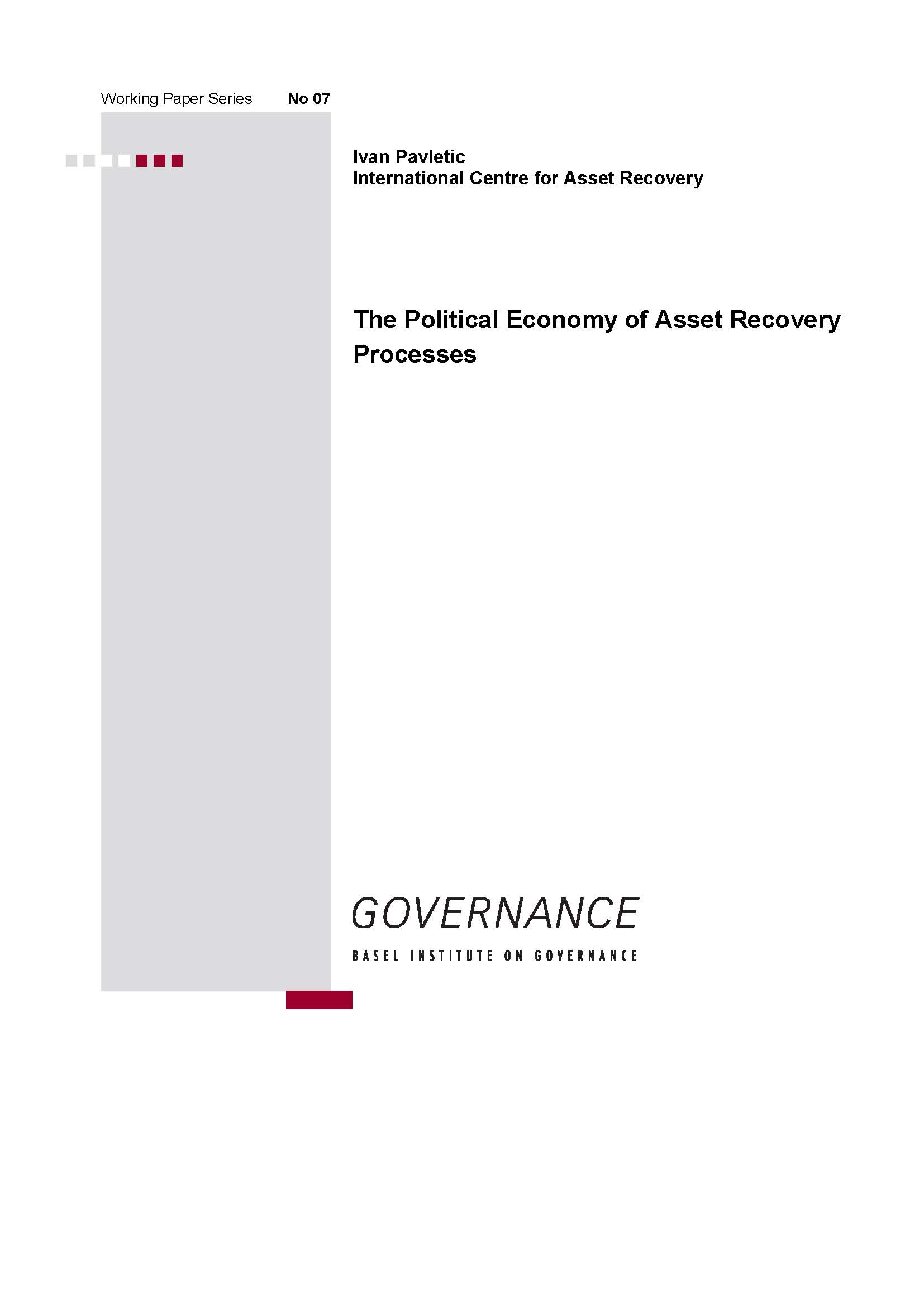Working Paper 7: The political economy of asset recovery processes
Keywords:
asset recovery, political economyAbstract
Since the mid-1990s, the fight against corruption has become an integral part of the international development agenda. Along with the growing concern about corruption, the problem of assets stolen by public officials came to the fore of the agenda. This is evidenced by a steady increase in international agreements, such as the Organisation for Economic Cooperation and Development (OECD) Convention on Combating Bribery of Foreign Public Officials in International Business Transactions adopted in 1997, and the United Nations Convention against Corruption (UNCAC) signed in 2003. The UNCAC, in particular, includes specific mechanisms that facilitate repatriation of stolen public assets.
Since political will is the concentrated expression of powerful political and economic interests in a country, more attention must be paid to these interests when it comes to asset recovery measures. This is the aim of the working paper.
By using the political economy framework, the paper identifies the political and institutional obstacles to effective policy implementation. The focus will be on the factors involved in the process of international recovery of stolen assets, although this process can and should not be analysed separately from the broader challenge of the fight against corruption. Both these issues are interrelated and can have a significant impact on each other.

Downloads
Published
How to Cite
Issue
Section
License
Copyright (c) 2009 Basel Institute on Governance

This work is licensed under a Creative Commons Attribution-NoDerivatives 4.0 International License.

